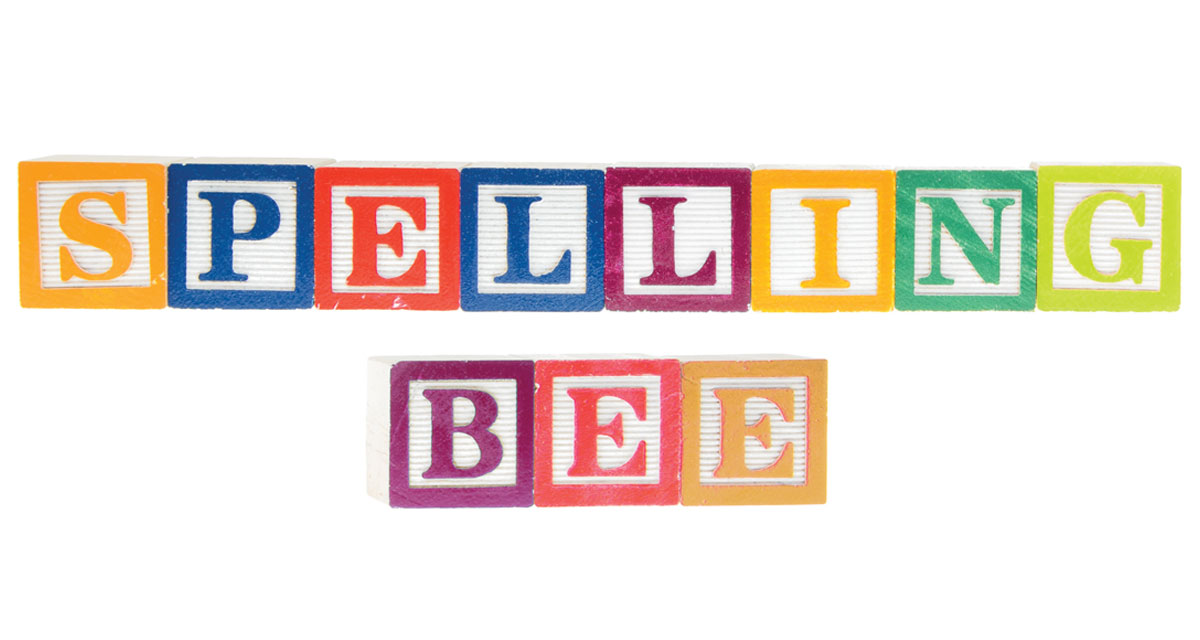Let’s be honest—most of us are very fond of a tool that makes our lives a little easier. Some of us may not be able to write or type well without it. The tool I’m referring to is spell-check. I am one of those people who rely on spell-check when writing. After all, I am not a good speller. However, spelling is a skill some people do have and is highlighted through many opportunities, including the National Spelling Bee. The Scripps National Spelling Bee, to be exact, is only offered for students through the eighth grade, but has a longstanding history of giving young people a chance to show off their spelling skills. In fact, this year is the 93rd Scripps National Spelling Bee, and it is usually held for a week in May. Before this year’s big event (which will be hosted later in the year than May, due to COVID-19), let’s take a look at the history of this well-known and treasured event.
- The purpose of the Spelling Bee is to help students increase their spelling, vocabulary, and to better learn how to use the English language.
- It started in 1925, when local spelling bees were organized by newspapers in Louisville, Kentucky. The only years it hasn’t been held were 1943 – 1945, due to World War II.
- The winning word for the inaugural champion Frank Neuhauser was the word “gladiolus.” Other winning words for past years include eudaemonic, deification, gesellschaft, koinonia, and scherenschnitte. I know I wouldn’t be able to spell any of these words if I were asked.
- The Bee is considered a nonprofit organization and is run through The E.W. Scripps Company. The company has had the rights to the program since 1941.
- Regarding specific restrictions, students who have not yet completed the eighth grade, won a previous National Spelling Bee, or are over the age of 15 are allowed to participate. They do have to be the regional winner of a spelling competition, usually their state’s, as well.
- The Spelling Bee is the United States’ largest and longest-running educational program and has 291 sponsors for participants throughout the world.
- It is also known for its global participants. While the majority are from the United States, other participants have been from The Bahamas, Canada, China, India, Ghana, New Zealand, Jamaica, Mexico, and Japan.
- As for the winner, he or she will receive a $50,000 cash prize and an engraved trophy.
Tips for Studying for a Spelling Bee
If you have a speller at home and have your eyes set on the school, local, regional, and national Spelling Bee, here are some tips on how to prepare.
- Space out studying your word list. Only practice 5 – 10 words a day. Students are usually given the list of words to study ahead of time.
- Start with the words you are familiar with, then move up the levels of difficulty. Isolate words you don’t know on the list. Keeping these words separate from the others will help you recognize which ones you need to focus more on and which ones you don’t.
- Create a study schedule. Look at your current schedule and obligations and determine a time when you and your child are able to study together. Block out a chunk of time each day, but be flexible as your schedule alters and gets closer to the competitions.
- Continue to expand your vocabulary through reading and learning new words.
The Scripps National Spelling Bee has reached over 11 million students and counting. It is a tradition for many and continues to celebrate the most accomplished young spellers throughout the world. For more information on the Scripps National Spelling Bee, visit: spellingbee.com/.



















